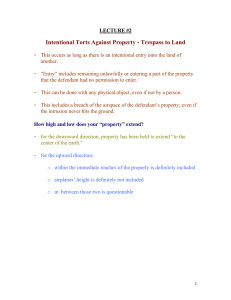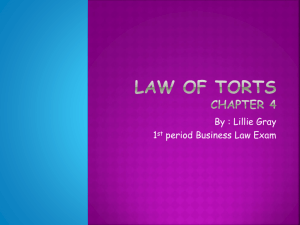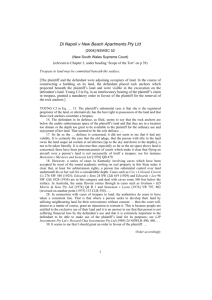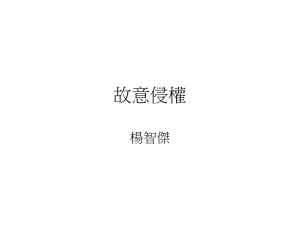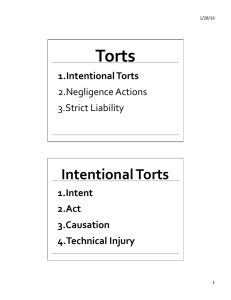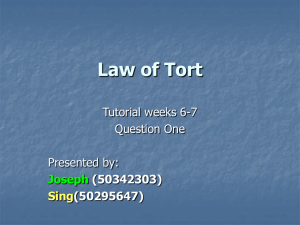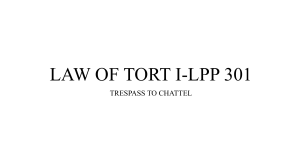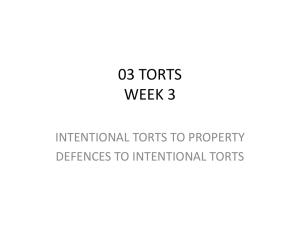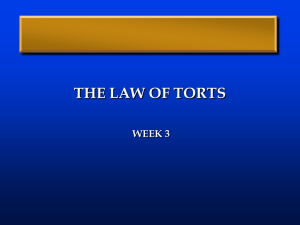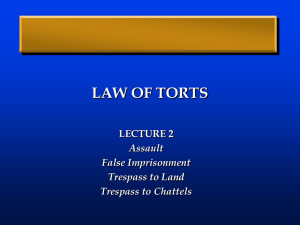Torts chap 11 - WordPress.com
advertisement
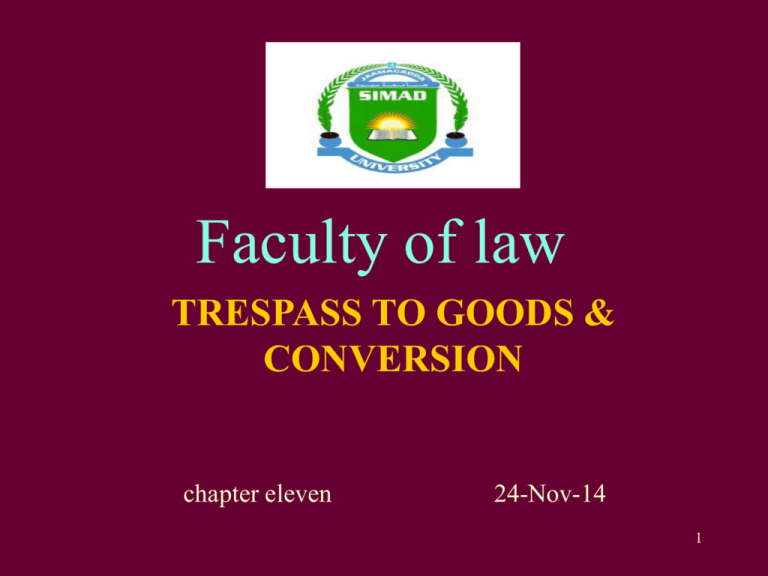
Faculty of law TRESPASS TO GOODS & CONVERSION chapter eleven 24-Nov-14 1 Trespass to Goods • Trespass to goods means direct and wrongful interference with the plaintiff’s possession of goods. The interference with the possession of goods may be by seizure or removal or by direct act causing damage to the goods. • Examples of trespass to goods: removing a tyre from cycle or car, scratching the panel of a coach, destroying or injuring the goods, beating or killing the Animals or infecting them with disease, etc. 2 Defences • Trespass to goods can be justified if it is done in defence of property or person, or in exercise of legal right or under legal process. • Lawful distress for rent is a recognized right and it will be a defense of the trespass if done in lawful exercise of it. Inevitable accident is also considered as a good defence. i.e., the plaintiff’s underground cables was damaged in excavation work. 3 Remedies a) detinue: it is an action for the recovery of goods wrongfully detained by the defendant. b) Damages: the damages in general are measured by the value of the goods or the amount of injury done to them. 4 Conversion • According to Salmond, a conversion is an act of wilful interference, without lawful justification, with any chattel in a manner inconsistent with the right of another, whereby that other is deprived of the use and possession of it. • A person who treats goods as if there were his when they are not, is liable to be sued in conversion. 5 Conversion • Conversion my be committed in many ways: 1) Conversion by taking goods: taking another man’s chattel with the intention of asserting dominion over it. i.e., stealing of goods 2) Conversion by detention of goods: to show an intention to keep the thing defiance of the plaintiff. 6 Conversion 3) Conversion by wrongful delivery of goods: depriving chattel from the owner to someone else so as to change the possession. 4) Conversion by wrongful disposition of goods: depriving a person from his goods without lawful justification by giving another a lawful title to them. 7 Conversion 5) Conversion by wrongful destruction of goods: consuming or destroying a chattel belonging to another person. 6) Miscellaneous forms of conversion of goods: a person is guilty of conversion who, in any other way than those mentioned above, causes the loss of chattel by any act of wilful (intentional) interference without lawful justification. 8 Defence to conversion a) Jus tertii: the defendant can plead that third party has superior title to that of the plaintiff. b) Other defenses are lien, license, distress damage feasant 9 Remedies • Where the defendant is not in possession of the goods at the time of trial, the only remedy is by way of damages. However, where the defendant is in possession of the goods at the time of trial there is further remedy by way of an order for redelivery 10 The end Any questions? 11
